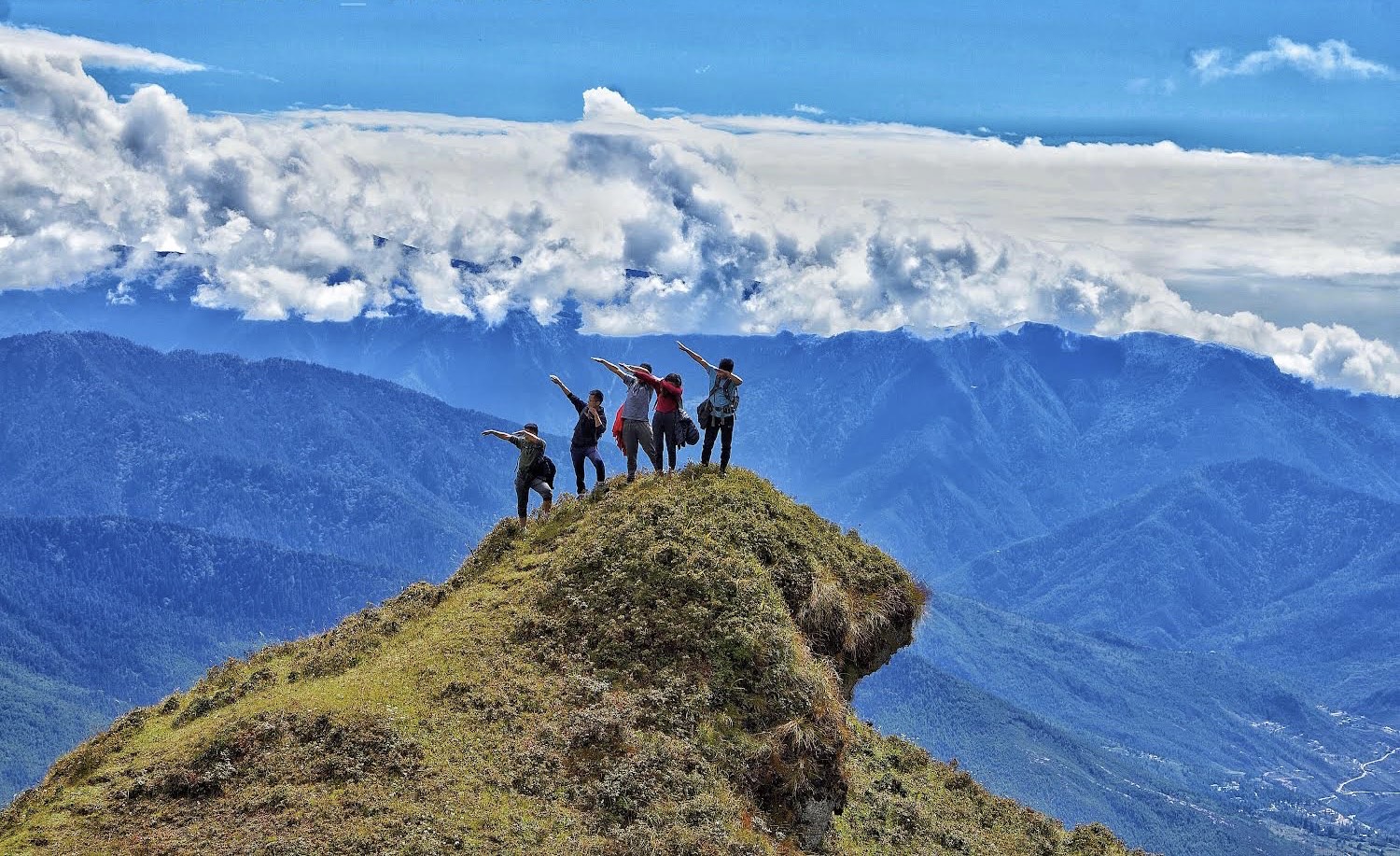Rafting the Kurichu-Manas river
Imagine rafting through mahseer-rich Kurichu-Manas River, snaking through Zhemgang’s cool broad-leaved forests echoing with the chirping of birds. Your destination is an eco-lodge, nature-based but comfortable, with meals sourced from local communities.
In Trashiyangtse one can relive the route of famous naturalists from 90 years ago, hunting for Ludlow’s Bhutan Glory.
These are only two eco-tourism products to be developed as part of the ‘Mainstreaming Biodiversity Conservation into the Tourism Sector in Bhutan’ project in Eastern Bhutan. A three-day annual workplan workshop completed on 10 December, with participants from the district and forestry offices charting out plans and activities for 2022.
Officials from the district and forestry offices in the east during the AWP meeting in Mongar
Exotic birds and over five endangered species’ conservation will be intertwined with the ecotourism project in eastern Bhutan, innovating the sustainable use of wildlife and promoting human-wildlife coexistence.
Recognising tourism sector’s potential for biodiversity consideration in its development, the Tourism Council of Bhutan (TCB) has initiated promotion of ecotourism development as a tool to strengthen biodiversity conservation.
The project is supported by Global Environment Facility (GEF) and UNDP, and co-financed by the Bhutan for Life, WWF and Bhutan Trust Fund for Environmental Conservation (BTFEC).
One of the black-necked crane hotspots in Bhutan is Bumdeling, Trashiyangtse
Two protected areas of Bumdeling and Sakteng wildlife sanctuaries cut-across the landscape were 22 mammals, 13 birds, four butterflies and a medicinal plant - all of which are threatened - are found in this mountain ecosystem.
Mountains are home to about 15 percent of the world’s population. It provides freshwater for everyday life to half of humanity and host about half of world’s biodiversity.
Conservation of mountain ecosystem is a key factor for sustainable development, linked closely with SDG15 or Life on Land.
In Bhutan, the 'high value, low volume' tourism policy has always supported protection of natural and cultural heritage, provided positive and enriching experiences to visitors and hosts, assured tangible benefits to communities and contributed to Gross National Happiness.
Mountains are home to 15 percent of the world's population and hosts half of world's biodiversity

 Locations
Locations


